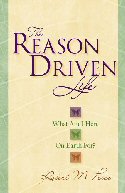 Whenever Iím around Bob Price, I think "Thank God for him." And then I remember that I really mean, "Thankfully, we have a Bob Price" and God probably had nothing to do it. Bob Price is such a rare individual. He really gets it: the value of religious stories, the value of the community, camaraderie, and sense of communal spirit that religious organizations provide. He has great respect for the Bible as a repository of ancient wisdom and a source of the narratives we tell ourselves about how we came to be and how we see our struggles with nature and with each other. And Bob Price isnít just a scholar of Christianity, he often references Buddhist parables too. He can bring up just the right story to provide a counterpoint or add emphasis to an idea. And not just Buddhism, psychology too: he can call on Jungian theory when itís meaningful and appropriate.
Whenever Iím around Bob Price, I think "Thank God for him." And then I remember that I really mean, "Thankfully, we have a Bob Price" and God probably had nothing to do it. Bob Price is such a rare individual. He really gets it: the value of religious stories, the value of the community, camaraderie, and sense of communal spirit that religious organizations provide. He has great respect for the Bible as a repository of ancient wisdom and a source of the narratives we tell ourselves about how we came to be and how we see our struggles with nature and with each other. And Bob Price isnít just a scholar of Christianity, he often references Buddhist parables too. He can bring up just the right story to provide a counterpoint or add emphasis to an idea. And not just Buddhism, psychology too: he can call on Jungian theory when itís meaningful and appropriate.
And most importantly, he knows bull when he hears it.
This book is not just a polemic against Rick Warrenís, The Purpose Driven Life. Itís a beautiful, inspired, insightful work in its own right. I walked around for days after reading it filled with new ideas and a better way to look at my own lifeís predicaments. And then I read it again, and I got even more out of it.
For almost my entire life, I was much like some of the people Price describes in this book. I was a Christian by default, and I didnít take it seriously enough for it to cause me any real trouble. Bob says that the most well adjusted Christians he knows are those that donít take it seriously. (Whether they are exactly conscious of this or not!) And I think that was me. I think I was well adjusted. But that doesnít mean that I wasnít also stunted in my maturity by the side effects of benignly believing in the Christian stories and the childlike idea of a loving God who was pulling all the strings.
 Then, there came a time when I was in crisis and I looked to my Christian faith to guide me. And it worked. At firstÖ But then I looked closer and closer at what I professed to "believe" in and realized that if you followed the Bibleís own logic and reasoning, if you expected it to stand up to even a modicum of scrutiny, you were going to be bitterly disappointed. I began to think that even Jesus, if he existed, would have to agree that the Bible itself was a house built on sand. Ultimately, I had to discard my faith. Bob Price says that for him, this moment was simultaneously a relief and a great disappointment. Exactly. Thatís what I felt too Ė maybe more disappointment than relief. But my discarding of my faith was based mostly on science and psychology and history. I didnít take the time to go over the Christian viewpoint again and decipher what made those religious ideas so compelling, so insidious, and so seductive. I didnít have the scholarship or the patience to look into each seemingly harmless evangelical belief and find out where it came from and why it deserves to be thoroughly trashed!
Then, there came a time when I was in crisis and I looked to my Christian faith to guide me. And it worked. At firstÖ But then I looked closer and closer at what I professed to "believe" in and realized that if you followed the Bibleís own logic and reasoning, if you expected it to stand up to even a modicum of scrutiny, you were going to be bitterly disappointed. I began to think that even Jesus, if he existed, would have to agree that the Bible itself was a house built on sand. Ultimately, I had to discard my faith. Bob Price says that for him, this moment was simultaneously a relief and a great disappointment. Exactly. Thatís what I felt too Ė maybe more disappointment than relief. But my discarding of my faith was based mostly on science and psychology and history. I didnít take the time to go over the Christian viewpoint again and decipher what made those religious ideas so compelling, so insidious, and so seductive. I didnít have the scholarship or the patience to look into each seemingly harmless evangelical belief and find out where it came from and why it deserves to be thoroughly trashed!
But Bob Price has that background! Which means that I especially enjoyed and learned so much from reading this book.
This past February, I attended and spoke at the annual conference, "TED" in Monterrey, CA. Rick Warren was also one of the speakers. They had included his book, The Purpose Driven Life in our packets of goodies. I read most of it the night before he was scheduled to speak. The first thing that struck me was Warrenís liberal Ė and really disrespectful Ė paraphrasing of Bible quotes and reinterpretation of Bible stories. I had recently reread the New Testament Gospels myself (for my monologue "Letting Go of God") and much of what I read in The Purpose Driven Life seemed utterly unlike anything I had read in the Bible. In any case, I was eager to hear Pastor Warren speak.
Chris Anderson (who hosts the TED conferences) introduced Rick Warren saying that The Purpose Driven Life "was the second best selling non-fiction book ever, and thatís if you count the Bible as a non-fiction book, which Rick Warren certainly does." Warren wore a Hawaiian shirt and sported a goatee; heís likable and approachable. He began as I expected, telling us that he didnít think we were accidents and that God planned for us to be alive and in fact even planned for us to hear his speech. But then Warren said something that surprised me. He said he thought his book was so popular because, "Most people never think it through. They donít codify it or quantify it, and say this is what I believe and why I believe it."
I was astonished that Rick Warren was so aware of why his book was so effective. I think he is right, most people donít think it through. I used to be one of those people. I was handed a moral code by my culture and religion and I was overtly and subversively not encouraged to think out my own morality. It was given to me from above, first from the sisters at the Catholic grade school I attended, then from the Jesuits who gave it the polish and feel of something intellectual, and then by my family who equated our rituals and culture with ethics and morality, and therefore questioning one part of this was tantamount to questioning all of it. And completely out of the question!
So for Rick Warren, "people who donít think it through" means "people that havenít accepted the fundamentalist Christian worldview based on the Bible." And those who never ask themselves "why I believe it" are people who donít just listen to their evangelical pastors telling them exactly what to believe and how to "serve" the church with their "gifts."
 Bob Price has the intelligence and persistence to tackle all these contradictions. Heís spent the time looking at what Bible translations Warren uses, and Price addresses the deeper, darker side Ė the shadow side -- of what Warren is really proposing. Price points out that encouraging people to deeply think about "why they believe what they believe" causes individualism to triumph over conformity, creativity over subservience, and empowerment over "joining the flock." Additionally, I was delighted to read along as Price nails Warren time and time again for his ridiculous, even comical use of Bible passages and quotations (as "translated" for a "modern" audience.)
Bob Price has the intelligence and persistence to tackle all these contradictions. Heís spent the time looking at what Bible translations Warren uses, and Price addresses the deeper, darker side Ė the shadow side -- of what Warren is really proposing. Price points out that encouraging people to deeply think about "why they believe what they believe" causes individualism to triumph over conformity, creativity over subservience, and empowerment over "joining the flock." Additionally, I was delighted to read along as Price nails Warren time and time again for his ridiculous, even comical use of Bible passages and quotations (as "translated" for a "modern" audience.)
So, this book youíre reading is a deeply thought out, theologically accurate, heartfelt dismantling of Rick Warrenís (and all Evangelicalsí) worldview. Even the ideas that seem, on the surface, to be unassailable (like Warrenís call to a life of service to others) Price takes apart, reveals each for the sham it is, with elegance and charm and disturbing accuracy.
It almost makes me glad that Rick Warren wrote The Purpose Driven Life so that Bob Price could write The Reason Driven Life! I look forward to having this book on my shelf and as a reference tool in the coming years. So, sit back and enjoy. And be disturbed (because you will be very disturbed). And then be inspired. As Price says, human divinity is really human potential. And human potential is what each of us has innately. We have an enormous amount of control over how we view ourselves in relation to this world and to our fellow passengers on this planet.
And for added pleasure, imagine Rick Warren reading this book and really getting it. Of course, itís highly unlikely to happen. But we can dream, canít we?
Julia Sweeney
June 6, 2006